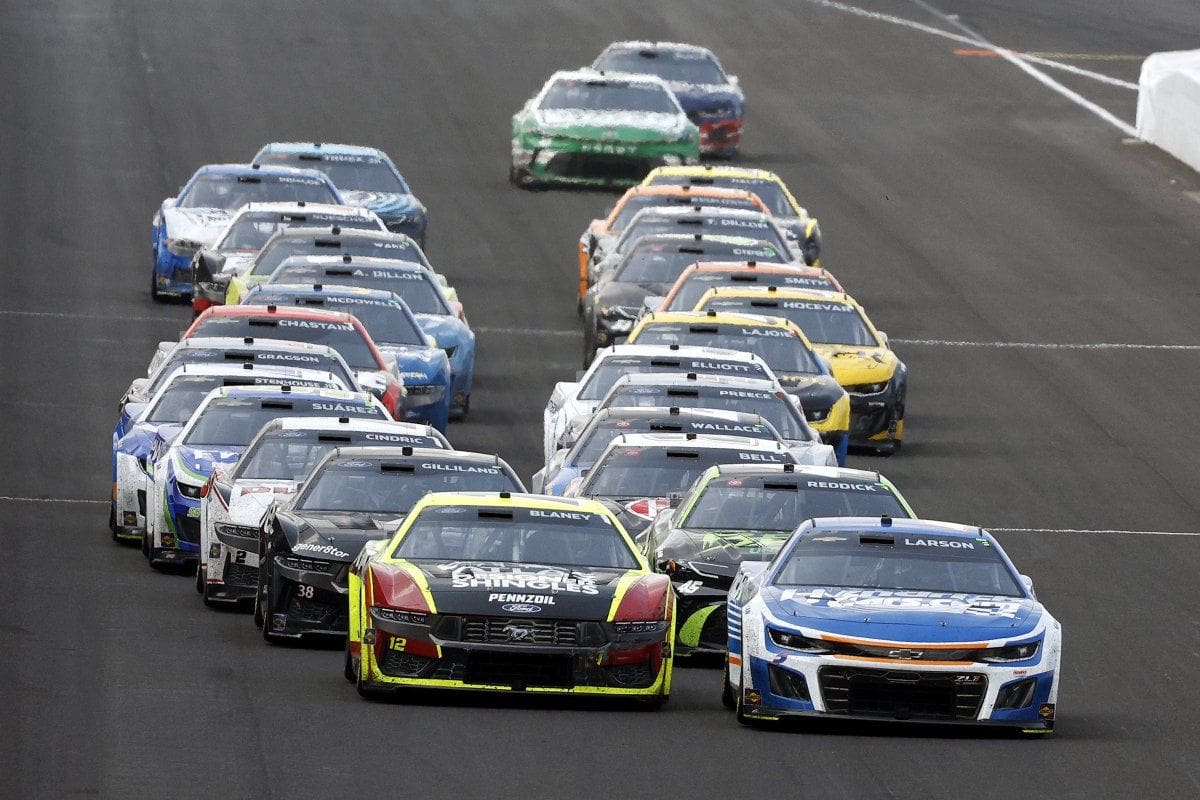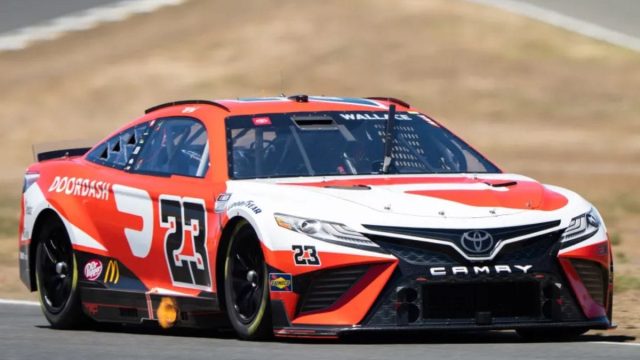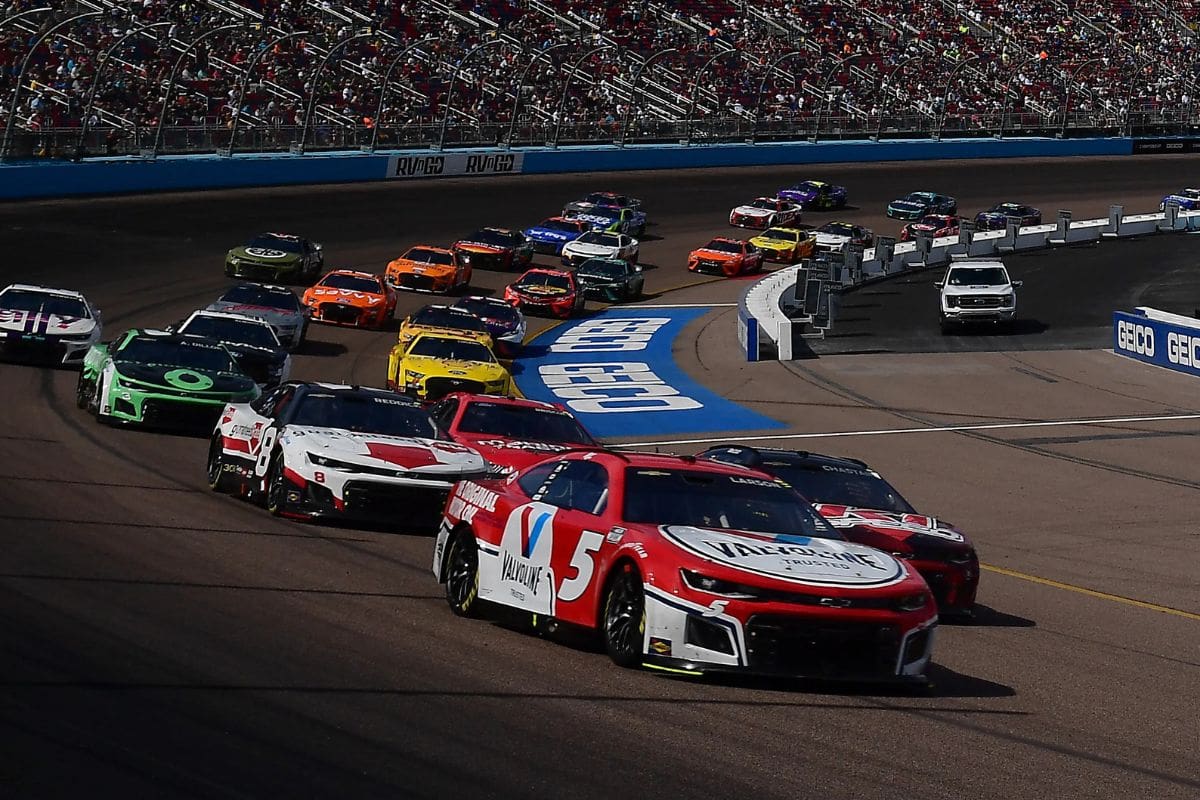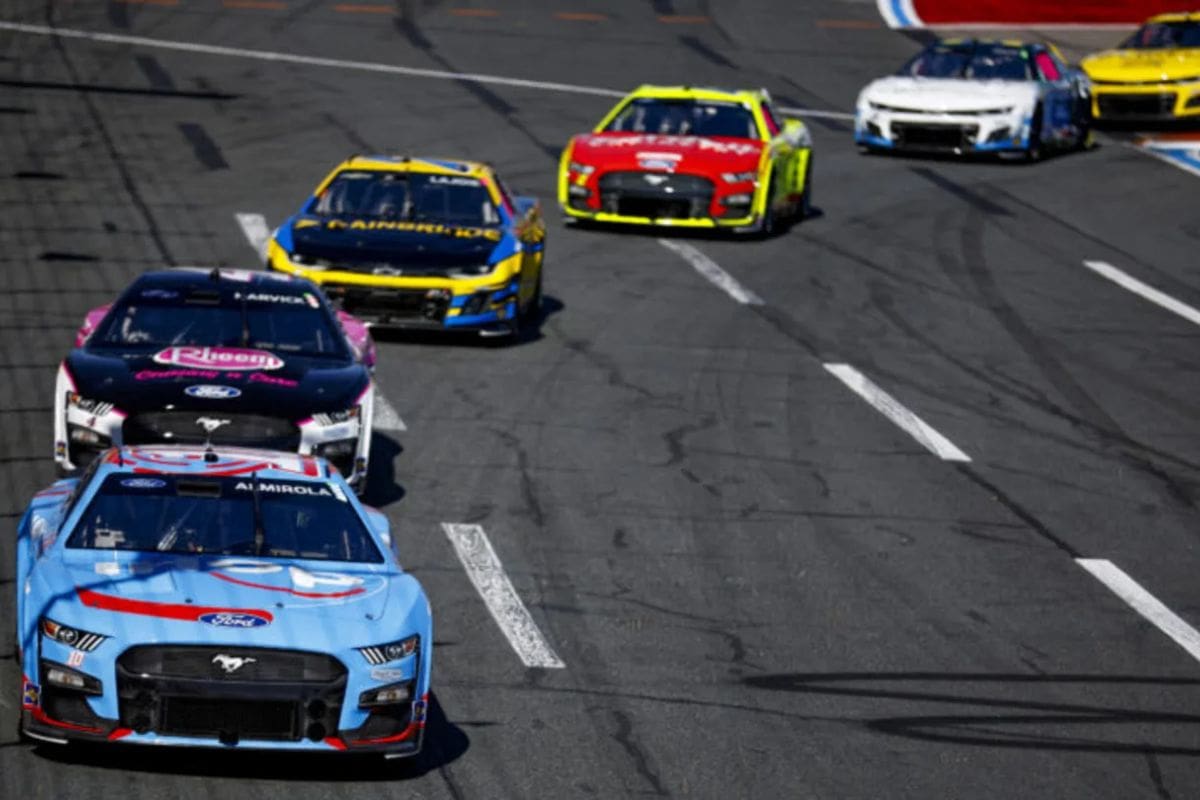23XI and Front Row Challenge France Family Monopoly: The current landscape of NASCAR reveals a notable challenge to the France family’s longstanding monopoly, driven largely by 23XI Racing and Front Row Motorsports. As these teams advocate for reform in the charter system, their defiance highlights a deeper division within the sport, reflecting broader concerns about equity and governance. This raises questions about the future of collaborative negotiations among team owners, who seem increasingly unwilling to accept terms perceived as inequitable. What implications might this conflict hold for the structure of NASCAR and the interests of its stakeholders?
Key Highlights
- 23XI Racing and Front Row Motorsports resist NASCAR’s charter demands, advocating for a fairer system that respects team autonomy.
- Tensions between NASCAR and teams have escalated due to perceived monopolistic practices by the France family, undermining trust and collaboration.
- Team owners express frustration over the lack of transparency in negotiations and unreasonable timelines for charter agreements.
- Legal challenges are anticipated as teams consider litigation against NASCAR to address inequities in the charter system and governance structure.
- The divide among teams could reshape NASCAR’s competitive landscape and influence future stakeholder relationships within the sport.
NASCAR’s Response to Charter Demands
NASCAR’s response to the escalating charter demands from Cup Series teams reveals a complex interplay of power dynamics within the organization. The recent surge in demands from teams such as 23XI Racing and Front Row Motorsports signals a growing tension as the current charter agreement approaches its expiration.
The requests for a higher revenue share, increased business slices, improved executive power, and permanent charters reflect a crucial moment in which teams are seeking greater agency within a structure historically dominated by the France family.
Despite the urgency of these demands, NASCAR’s leadership has only acquiesced on the revenue-sharing front, leaving the other notable requests largely unaddressed. This selective concession highlights to alter the existing power structure, which has long favored a centralized authority.
Such a stance may exacerbate tensions, particularly as dissenting teams choose to publicly challenge the status quo, risking potential backlash while standing firm in their demands.
The defiance exhibited by 23XI Racing and Front Row Motorsports exemplifies the growing divide within the Cup Series, where the desire for equitable governance clashes with entrenched institutional norms.
As NASCAR navigates these challenges, the organization must reconcile its commitment to maintaining a cohesive competitive environment with the evolving needs of its teams.
If left unaddressed, this impasse could lead to further toyota-corey-heim/” target=”_blank” rel=”noopener”>fragmentation and dissent, signaling a crucial moment in the future course of the sport.
Rift Between NASCAR and Race Teams
Tension has escalated into a considerable rift between NASCAR and its race teams, reflecting deeper issues of governance and power within the organization. The ultimatum delivered by NASCAR CEO Jim France, a traditionalist known for upholding the principles established by his predecessors, has ignited discontent among team owners. “They put a gun to our head and we had to sign,” The recent demand for a rapid endorsement of a 105-page charter agreement under the threat of losing 2025 charters has left many feeling coerced. “It just was tough to get a 105-page contract at 6 o’clock on Friday night and then be asked to sign it by midnight. We just didn’t feel like it was the right thing to do. I don’t have anything against the guys who did sign it. I know a lot of people were uncomfortable but felt like they had to.”
This situation crystallizes several critical issues impacting the relationship between NASCAR and its teams:
- Lack of Collaboration: The unilateral approach taken by NASCAR to impose new terms disregards the collaborative spirit vital for fostering trust and mutual respect among stakeholders.
- Financial Implications: The strain to quickly sign the charter deal raises concerns about the financial stability of teams, who may feel cornered into agreeing to unfavorable terms to secure their futures.
- Cultural Divide: The traditionalist mindset of NASCAR leadership clashes with the evolving landscape of motorsports, where teams seek more autonomy and a voice in decision-making processes that affect their operations.
The current rift not only threatens the operational dynamics within NASCAR but also poses a risk to the sport’s long-term viability by alienating key stakeholders.
As the organization navigates these turbulent waters, the need for a more inclusive and equitable governance framework becomes increasingly apparent.
Defiance by 23XI Racing and Front Row Motorsports
The defiance displayed by 23XI Racing and Front Row Motorsports highlights a significant shift in the dynamics between race teams and NASCAR leadership. In a landscape where 13 out of 15 race teams acquiesced to a contentious charter agreement, the refusal by Denny Hamlin and Michael Jordan‘s 23XI Racing, alongside Front Row Motorsports (FRM), signals a crucial moment of resistance. Their actions reflect an emerging willingness to confront perceived inequities within the sport’s governance.
Denny Hamlin and Michael Jordan have been vocal advocates for a more equitable charter system, actively challenging NASCAR’s authority in negotiations. Their decision to retain the autonomy of 23XI Racing, despite the potential repercussions of losing a tertiary charter in 2025, emphasizes the team’s commitment to fostering a competitive environment rather than capitulating to what they deem oppressive terms. This stance demonstrates a broader movement among certain teams to prioritize their interests over complacency.
Front Row Motorsports’ defiance is particularly striking given the team’s recent acquisition of a charter from Stewart-Haas Racing, valued between $20-25 million. Bob Jenkins, the owner of FRM, appears to have reached a breaking point, unable to tolerate what he perceives as NASCAR’s unreasonable demands.
This unexpected rebellion from a traditionally compliant organization suggests a growing discontent among race teams regarding governance structures and financial models.
As these teams stand firm against the prevailing norms, they may inspire a re-evaluation of power dynamics within NASCAR, potentially leading to more equitable practices in the future.
Criticism from Team Owners
Many team owners have voiced their frustration regarding the recent charter contract negotiations, highlighting a perceived lack of fairness and transparency in the process. The sentiment reflects a broader discontent within the racing community, as teams grapple with the implications of hastily negotiated agreements. Importantly, 23XI Racing articulated its concern about inadequate bargaining opportunities, echoing sentiments expressed by other team leaders.
Key points of criticism include:
- Unreasonable Timelines: The tight deadline imposed for signing a complex 105-page contract—just hours after receiving it—has raised eyebrows. Jenkins pointed out the absurdity of being compelled to finalize such a crucial agreement within a few hours, illustrating a lack of consideration for the teams’ operational realities.
- Regressive Negotiations: Many team owners feel that the negotiations have not only failed to advance their interests but have actually regressed in key areas. This perception of setback is troubling and points to a disconnect between NASCAR’s leadership and the realities faced by the teams.
- Discomfort Among Teams: Although some teams proceeded with signing the contract, many did so under duress. The prevailing sentiment suggests that owners felt compelled to acquiesce rather than engage in meaningful dialogue, further undermining the principles of fairness and cooperation.
These criticisms emphasize a critical point for NASCAR, as the ongoing dissatisfaction among team owners could have far-reaching implications for the sport’s governance and future negotiations.
Potential Legal Challenges
As frustrations mount among team owners over the recent charter contract negotiations, the possibility of legal action looms larger. “My guess is they feel they have a good legal standing that any revoking of their charters wouldn’t stand up in court or at least wouldn’t be worth it to nascar to try to prevail in open court.” The situation has escalated to a point where Denny Hamlin’s team and Bob Jenkins’ team are contemplating serious legal recourse, suggesting a potential confrontation in the courtroom.
Eric Estepp, a prominent voice in the discussion, indicates that both teams may argue that NASCAR’s practices could be monopolistic in nature, a claim that could reshape the regulatory landscape of the sport.
The involvement of antitrust lawyer Jeffrey Kessler, previously hired by the Race Team Alliance to facilitate negotiations, highlights the gravity of the dispute. His expertise in sports law, particularly with the NFL, positions him to navigate the complexities that may arise if litigation becomes inevitable.
However, Estepp also cautions that pursuing legal action can be prohibitively expensive and time-consuming, raising the stakes for all parties involved.
Additionally, Bob Pockrass notes that the teams might feel confident in their legal standing, believing that any attempt by NASCAR to revoke their charters would likely falter in court. This sentiment reflects a growing sentiment of defiance among owners, who are increasingly unwilling to accept perceived inequities within the charter system.

News in Brief: 23XI and Front Row Challenge France Family Monopoly
The ongoing challenges posed by 23XI Racing and Front Row Motorsports reveal a notable shift in NASCAR’s competitive landscape. As these teams advocate for a more equitable charter system, the break between team owners and the France family emphasizes systemic issues within the organization. This resistance may governance structures, encourage necessary reforms. The potential for legal challenges further complicates the situation, highlighting the urgent need for collaboration and transparency to guarantee the sport’s future possibility.
ALSO READ: Spire Motorsports Emerges From Michael Jordan’s Shadow: Outshining 23XI Racing’s Ambitions


